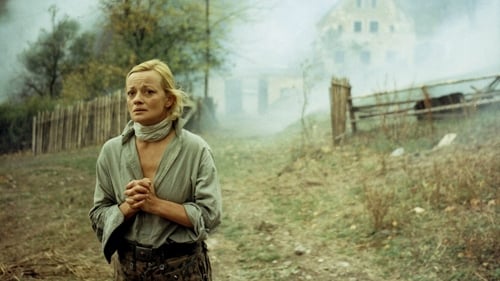
Dark satire about bare-knuckled capitalism in the immediate post-Cold War era. Set just as the Communist government is collapsing, the film focuses on the brutish Racz, the handyman in a Bratislava hotel. Knowing that his job is insured for life, Racz turns off the building's heat and demands food, money, and sex to have it restored. The film is narrated by a pimp named Urban who explains that people in the former Czechoslovakia were so used to being abused that they simply put up with Racz's corruption. By the end of the film, Racz's fortunes have changed considerably. Instead of being a lowly worker, he is now a ruthless and wealthy businessman, unafraid to kill or kidnap those who get in his way.

In a small community around 400 years ago, Esben (Juraj Hrcka) has to flee when his mother is tried and burnt as a witch as a result of the cruel hysteria of the townsfolk. Finding shelter with the hermit Hans (Peter Staník), a friendship grows between the two, as Hans teaches Esben how to survive secluded from the rest of mankind, and introduces him to the secrets of medicine. But when Hans himself is taken, Esben is forced to flee again...

Drama set on an isolated farm on the Czech-Polish border immediately after the end of WWII.

The film captures the new events in the lives of the main characters of the film "The Copper Tower". After two years spent in prison because of smuggling they return to the Stratená dolina valley and plan a revenge on police lieutenant Pardek.

This dramatic story is situated in the town of Trnava of the 18th century. Painter Peter paints an altar-piece of the Martyrdom of St. Juliet and his model is a young girl. This is much disliked by the clergy who unjustly accuse the girl of witchcraft. She is saved from being burnt at a stake by the students of the Trnava University. (IMDb)

Slovak movie is based on the novel by the prominent representative of Slovak prose František Hečka, who was in 1952 awarded the State Prize. The novel and the movie successfully capture the development of Slovak village after the liberation in 1945. The narrative is centred around the characters of the old Púplava, who after the liberation begins to organise a new village life, and his struggle for the construction of settlements Mrzáčky, burnt by the fascists. It is centred around the conflict, greatly reflecting the situation of the countryside at this time: the conflict between the rural poor and the rural rich. In the movie, a rich personal and emotional life of other heroes pulsate besides the main storyline. The movie ends with the final defeat of the reactionary forces by Communists in February 1948, taking over all power in the state of workers and peasants. - "The Wooden Village" is released in celebration of the 7th anniversary of the Communist February Victory.





